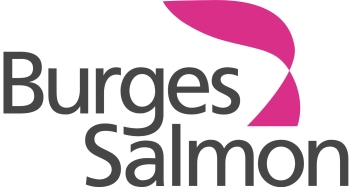Here are our top 10 suggestions of New Year's resolutions that food and drink businesses might make to ensure they are fighting fit and ready for 2019.
2018 was a busy year for the Food and Drink team at Burges Salmon. We've been advising businesses across the supply chain on a range of challenges facing the sector. As we welcome in 2019 the team has been thinking about some New Year's resolutions that food and drink businesses might make to ensure they are fighting fit and ready for the year ahead. Here are our top 10 suggestions:
- Supply contracts: Have you got the most robust contractual terms in place to help you manage whatever Brexit might look like in the year ahead?
- Allergens: Have you got arrangements in place to ensure that you comply with existing allergen labelling legislation (and any future changes to that legislation). Have you also ensured that you have procedures and contractual provisions in place to ensure your suppliers are also compliant?
- Food crime: Food crime is on the increase. Do you know where your areas of risk are? Take a look at 'PAS 96', the BSI's guide to protecting and defending food and drink from deliberate attack and carry out a risk assessment to identify areas of weakness in your business
- Supply chain: Is your supply chain sustainable or open to disruption? Is there transparency in your supply chain: do you know who supplies your supplier? Take a look at the FDF's guidance on mapping your chain and identifying areas of risk
- Employees: Why not pay the £65 application fee to assist your European workers in obtaining settled status and securing their right to live and work in the UK?
- Natural resources: Consider procuring and evidencing sustainable energy and water supplies if you haven't already
- Transport and distribution: How can you best employ electric vehicles and low carbon transport to assist your business?
- Investment or exit plans?: Whether 2019 marks the time for you to look for additional investment to support the future growth of your business or to seek an exit from your business, it is never too early to begin preparation for these key life events for you and your business. Getting your house in order will make the business as attractive as possible to investors and buyers alike so consider a mini "legal audit" to avoid any nasty surprises down the line!
- Financing: When did you last sit down with your relationship director at your bank? It's likely the lending climate could change significantly next year as the implications of Brexit become clear. Consider if you need to bring forward any refinancing plans or, if you are an export business, whether you need additional support for example from your bank or from UK Export Finance, which has made more cash available to support small businesses
- Branding: Your brand will be a key part of your business - is it protected in all the territories in which you do business, and are your registrations up-to-date to cover all the goods & services you provide. NB the impact of Brexit on your EU registrations.
For further information on this topic please contact Sian Edmunds at Burges Salmon LLP by telephone (+44 117 939 2000) or email ([email protected]). The Burges Salmon LLP website can be accessed at www.burges-salmon.com.
This article has been reproduced in its original format from Lexology – www.Lexology.com.



